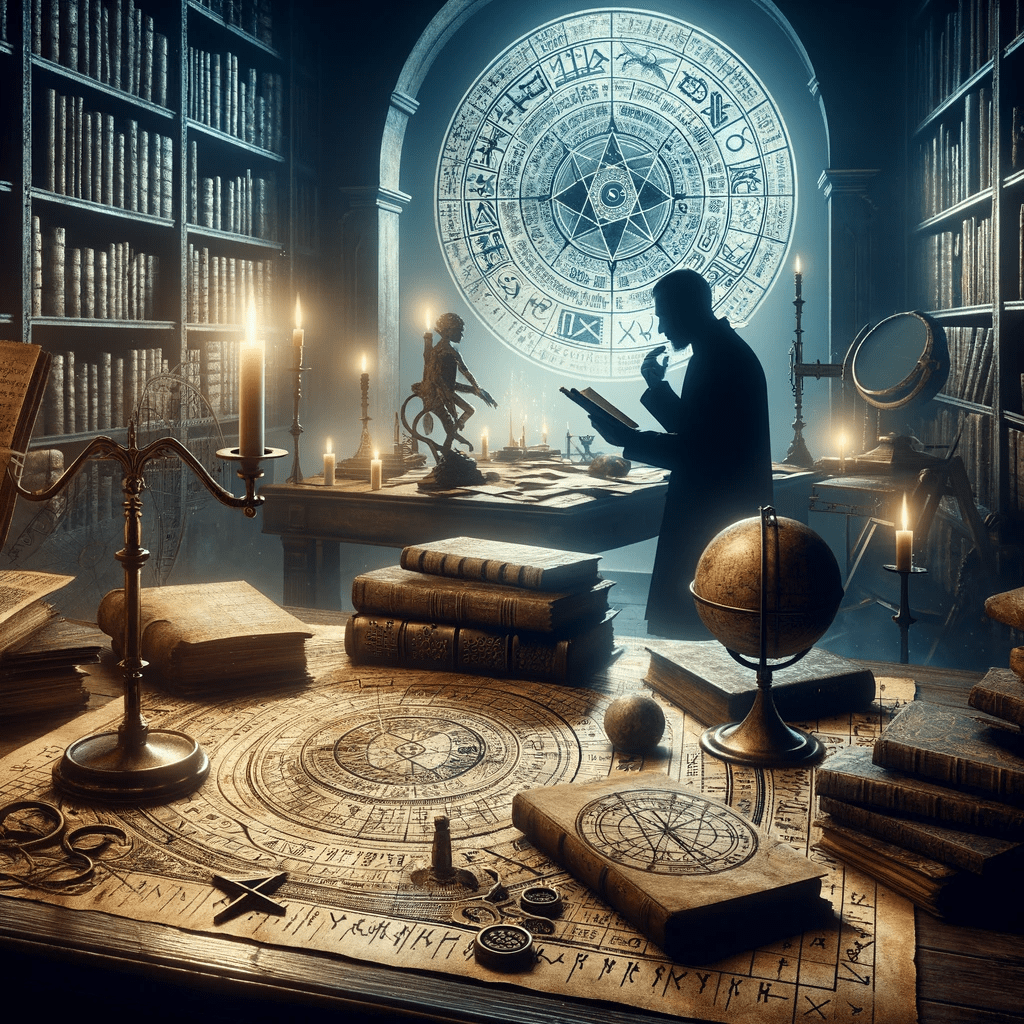Unholy Alliance: A History of Nazi Involvement with the Occult

“Unholy Alliance: A History of Nazi Involvement with the Occult” is a book by Peter Levenda that explores the connections between the Nazi regime and occultism. The book argues that the Nazi party had a strong interest in esoteric beliefs and practices and that these beliefs influenced their ideology and actions. We will summarize the key points and claims made in the book.
Key Points:
- The Nazi party was deeply interested in occultism and esoteric beliefs. This interest was reflected in their symbols, rituals, and beliefs.
- Many prominent Nazi leaders, including Heinrich Himmler and Rudolf Hess, were heavily involved in occult practices and beliefs.
- The Nazi party believed in the concept of an Aryan race, which they believed was superior to all other races. This belief was rooted in occult beliefs about ancient civilizations and lost knowledge.
- The Nazi party had a strong interest in the occult practices of other cultures, including Hinduism and Buddhism.
- The Nazi party used their interest in the occult to justify their actions, including the Holocaust and other atrocities.
- Many Nazi scientists and researchers were involved in experiments and studies related to occult beliefs, including attempts to contact supernatural entities.
Important People:
- Heinrich Himmler – A prominent Nazi leader who was heavily involved in occult practices and beliefs. He was the head of the SS, which oversaw many of the Nazi party’s occult research and experiments.
- Rudolf Hess – Another prominent Nazi leader who was involved in occult practices and beliefs. He was one of Hitler’s closest advisors and believed in the importance of esoteric knowledge.
- Karl Maria Wiligut – A SS officer who was heavily involved in occult beliefs and practices. He believed in the concept of an ancient Germanic civilization and worked on developing a new religion for the Nazi party.
- Ernst Schäfer – A scientist who was sent by the Nazi party to Tibet to study the culture and beliefs of the people there. He was interested in the connections between Buddhism and Nazi ideology.
Other Books:
- “The Occult Roots of Nazism” by Nicholas Goodrick-Clarke – This book explores the connections between Nazi ideology and occult beliefs. It argues that many of the key concepts of Nazi ideology, including the concept of an Aryan race, were rooted in occult beliefs.
- “Black Sun: Aryan Cults, Esoteric Nazism, and the Politics of Identity” by Nicholas Goodrick-Clarke – This book explores the resurgence of neo-Nazi and white supremacist groups in the post-WWII era. It argues that many of these groups are influenced by occult beliefs and the concept of an Aryan race.
- “The Secret King: The Myth and Reality of Nazi Occultism” by Michael Moynihan and Stephen E. Flowers – This book explores the connections between Nazi ideology and occult beliefs. It argues that many of the key figures in the Nazi party were heavily involved in occult practices and that these beliefs influenced their actions.
- “Hitler’s Monsters: A Supernatural History of the Third Reich” by Eric Kurlander – This book explores the connections between Nazi ideology and supernatural beliefs. It argues that the Nazi party had a strong interest in supernatural phenomena, including ghosts and werewolves, and that this interest influenced their actions.
“Unholy Alliance: A History of Nazi Involvement with the Occult” is a book that explores the connections between the Nazi party and occult beliefs and practices. The book argues that many of the key figures in the Nazi party were heavily involved in occult practices and that these beliefs influenced their ideology and actions, including the Holocaust and other atrocities committed during World War II. The book provides a comprehensive overview of the Nazi party’s interest in the occult, including their beliefs in an Aryan race, their use of occult symbolism, and their attempts to contact supernatural entities.
There are several other books that explore similar themes as “Unholy Alliance,” including “The Occult Roots of Nazism” by Nicholas Goodrick-Clarke, “Black Sun: Aryan Cults, Esoteric Nazism, and the Politics of Identity” by Nicholas Goodrick-Clarke, “The Secret King: The Myth and Reality of Nazi Occultism” by Michael Moynihan and Stephen E. Flowers, and “Hitler’s Monsters: A Supernatural History of the Third Reich” by Eric Kurlander.
“Unholy Alliance” is an informative and well-researched book that sheds light on an often overlooked aspect of Nazi ideology and history. It provides a valuable contribution to the understanding of the complex factors that influenced the actions of the Nazi party during World War II.

